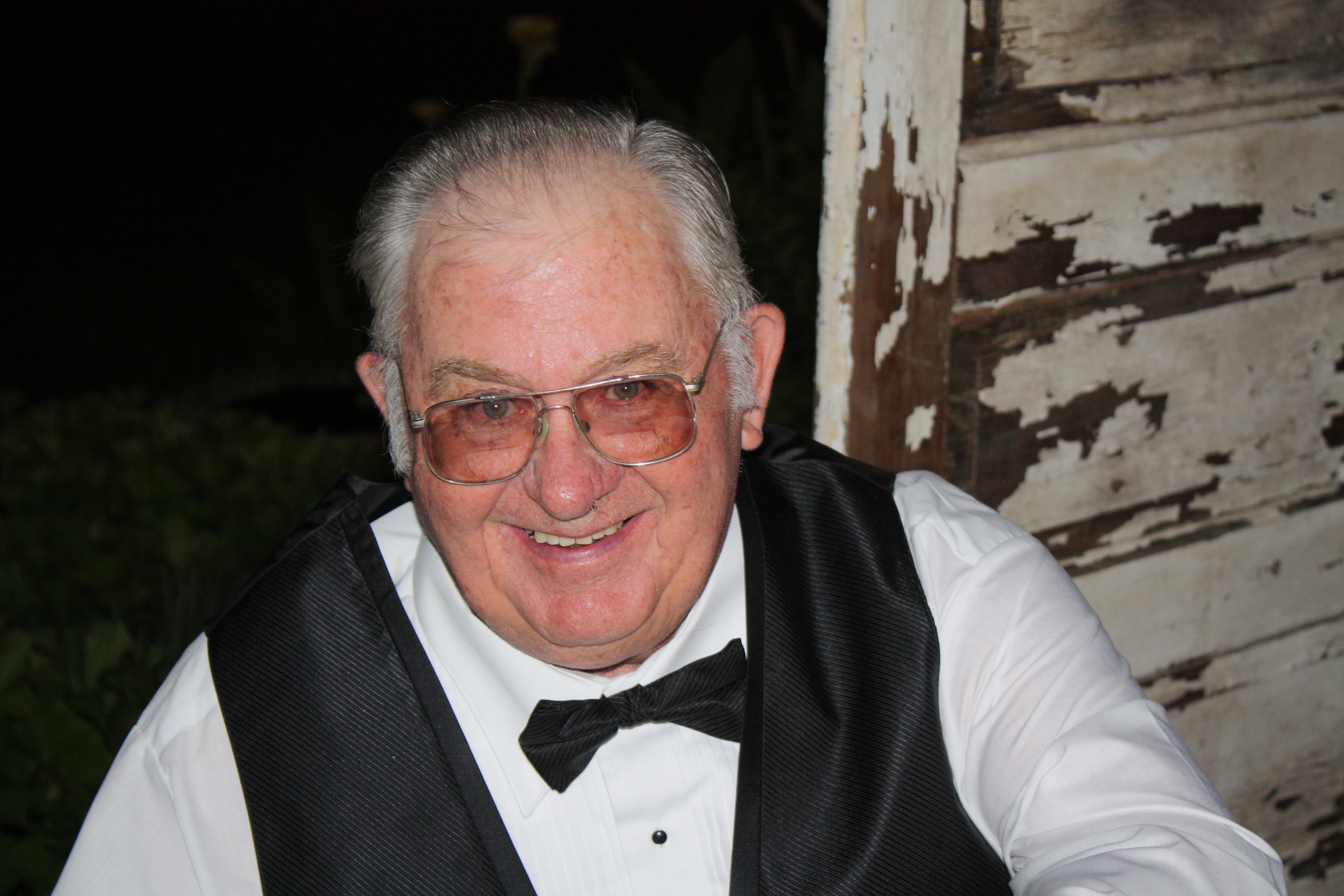
by john | Apr 10, 2017 | Amazing Grace, Fiction, Serialized Fiction, Writing
This is the 9th chapter of an ongoing serialized novel that I’m working on and posting up here in rough draft form. To read other chapters, CLICK HERE. Wednesday I’ll have a post about some changes to the book that I’ve found need to happen through this process, and the evolution of a novel, so if you’re enjoying these posts, come back
9
Walking amongst the dead always brings me peace somehow. I know it’s the opposite for a lot of people, but I find the company of the resting dead awful relaxing. As much time as I spend with the restless dead, it’s exceedingly peaceful to walk among those that have gone on from here.
So that’s what I did. I walked along the front row of the cemetery, right there on Front Street, with my truck parked all cattywumpus like I’d been drunk as Cooter Brown when I pulled into the parking lot. I lingered for a second in front of the three-sided monument that Cousin Bowman had collected money from everybody in the family to put up back in the 1964. My daddy gave him twenty dollars and bought three four copies of the book he wrote about our family’s travels across the ocean from England to the South Carolina upstate, and told Bowman to get the hell out of his face and not to never ask him for another dollar while he was trying to eat.
In defense of Daddy’s manners, he said he was trying to eat some of Aunt Eller’s coconut cake, and her coconut cake always was everybody’s favorite. She’d make this three-layer white cake so moist if you squeezed it you could get water for days. Ellen always made Cool-Whip icing with a bunch of shaved coconut all through it, so you got some coconut in the icing between the layers of the cake, too. It wasn’t like some of them store-bought coconut cakes, which is basically a white sheer cake with some coconut sprinkled on top. I tried for years to learn how to make cake like Aunt Eller, but I never could figure it out. Then she passed, and then Daddy passed, and I never married, so I didn’t have anybody to teach me, nor anybody to eat it, so I just quite trying. It’s probably been a month of Sundays since that old Tupperware cake carrier has seen any use.
I looked at that monument, tracing the Carters, and the Thomases and the Feemsters all the way back to whatever little piece of English soil they sprang up from. The original Johnny Thomas in this part of the world was from Wales. He was about old Sheriff Johnny’s grandpappy with about a dozen greats in front of it. Me and Johnny always knew we were some kind of kin, but being Southern, we just called it “cousins” and let it go at that. My mama always could rattle off what number cousin you were to somebody and how many times removed, but I never got the hang of it.
I walked a little further, and took a seat on a headstone in front of my Granny’s stone. I was sitting on Mr. Bo Mickle’s stone, and I usually made it a point to apologize to Mr. Bo for disrespecting him that way, but I’ve been doing it so long by this point that I reckon Mr. Bo would have found some way to let me know if it bothered him.
“Hey, Granny,” I said. She wasn’t there, of course. Granny died when I was about thirteen, and she didn’t linger but a couple of days. I met her right here the morning after her funeral and watched her walk into the light. It wasn’t like she walked up into the clouds like the end of Highway to Heaven episode, but there was a bright white light, and she told me she loved me, and told me to be good, and then she turned around and went away. So I knew she wasn’t listening in, but somehow that made it easier to talk.
“Granny, I’m having a terrible time with this one. The poor little girl wants my help so bad, but her mama and daddy won’t have any of it. Her mama won’t, anyhow. That preacher Turner has got his hooks into her so deep you’d think she was going to make a big donation or something. I’m sorry, that wasn’t very Christian of me. But he just makes me so mad sometimes. It’s like he knows I want to help people, and he keeps trying to get in my way anyhow.”
I got down off the top of Mr. Bo’s rock and moved over to sit cross-legged on the grass right in front of Granny’s stone. I’d done this forever, but the older I got, the harder it was to get up off the grass when I was done. I reckoned it wouldn’t be too many more years before I was going to have to have a cane or some kind of walking stick if I was going to go traipsing around in cemeteries. This one wasn’t too bad, but some weren’t maintained as good, like the one where Pap was buried.
Yeah, Granny and Pap didn’t lay to rest together. They weren’t even in the same town. Granny was right here in Lockhart, but Pap was way over in Chester. He remarried after Granny went, and that was about the last we saw of him. It was like he wanted nothing more than to forget our family and go be with a new one. I didn’t like it, and I could tell it hurt Mama something awful, but we respected the old man’s wishes and left him alone. He lived a long time after Granny passed, ’til he was well into his nineties. I only heard about it when he died because I read the obituary. There was no mention of our family in the listing of relatives. Since I wasn’t family anymore, I didn’t go to the visitation.
I did go to the funeral, though. I stood back away from everybody and watched them lay the old man to rest. When all the rest of the mourners got back in their cars, I walked up to the graveside and stood there for a minute watching the men lower the casket into the dirt. I was just about to walk back to my truck when he stepped up beside me.
“You still see ghosts, Lila Grace?” my dead grandfather asked me.
I nodded. I didn’t really want to talk to him. I didn’t know what to say. This was the man who had made me a rocking horse for Christmas when I was three years old. A rocking horse I had until I was a grown woman and gave it to a young couple at the church who had a little boy who loved to play cowboy. This was also the man who abandoned my mother when she needed a parent most, when she was burying her own mother in that ugliest cycle of life. The man that turned his back on my family for over two decades, and now stood next to me while I watched his body being lowered into the ground and tried to decipher my feelings.
“I expect you got some questions. If you’d see fit to come with me for a minute, I’d like to answer ‘em.”
Well, the old man knew he had me then. I was so curious when I was little that he used to call me “Cat.” “Get on out of here, Little Cat,” he’d say when he caught me snooping in his or Granny’s closets, trying to find Christmas presents or birthday presents, or just old pictures of him from the War or of Granny when she was young woman.
None of that curiosity faded as I grew up, and getting older did nothing to tame that curious Little Cat, so I followed the old man. He walked around to the back of my truck and motioned at the tailgate. I opened the tailgate and sat down on it. He sat next to me, and this let us sit together without being forced to look at one another. I liked that arrangement.
“Best thing about driving a truck, Little Cat,” he said. “You carry your car, and a table, and a seat with you all in one.”
“Don’t call me that,” I said, my voice suddenly that of a seven-year-old girl again.
“Why not? It’s what I’ve called you for years.”
“No,” I corrected. “It’s what you used to call me. You ain’t called me nothing in years.”
“Well,” he said, looking at the laces on his boots. He was dressed like I always used to see him, in a checked flannel shirt, blue jean overalls, and brown work boots. Most ghosts present wearing what they died in, but some wear what they’re most comfortable in. Sometimes they’ll get a look at their funeral, and all of a sudden it will switch to what they were buried in. Dickey Newton showed up one day wearing nothing at all, dead as a doornail and naked as the day he was born. I sent Dickey away and told him not to show his face, or any other part of himself, around me until he learned to manifest himself at least a pair of britches.
“What are you still doing here, Pap?”
“I stayed to see you. I’m glad you came to the funeral.”
“I felt like it was the right thing to do.”
“For me or for you?”
“For me. What you thought hasn’t been on my mind much since you wrote us out of your new life.” I could hear the bitterness in my voice, but I didn’t care. He hurt my feelings when he just up and abandoned us like that, and I reckoned he could know it.
“I am sorry about that, Lila Grace.”
“If you hadn’t done it, I reckon you wouldn’t have nothing to be sorry for.”
“Well, you’re right about that. It was wrong, and it was selfish.”
“So why’d you do it?”
He didn’t say anything for a long time, and when he finally spoke, his words were slow, like he was picking them carefully. “After your Granny died, I was a mess. We had twenty-seven good years together. I guess that ain’t really true. We had twenty-four good years, with enough bad days throughout to make up a year or two, and the last year was pretty rough. When your Granny got sick, I didn’t do nothing but take care of her for a year. It was hard on me, but that’s what a husband is supposed to do.”
“Well, when she was gone, I didn’t have that purpose any more. I couldn’t remember what it was like to be anything more than the man with the sick wife, and every time I saw your Daddy, or any of my family, all I saw was her face. It didn’t take long until I couldn’t stand that anymore, so I left.”
“You always told me that a man faces up to what’s hard.”
“That’s true. I just wasn’t much of a man right then. So I went away, and I made myself a new family, and I loved them. I know you probably don’t want to hear that, but I did. It was a different love than what I had for y’all, but it was a true thing just the same. But I never forgot you. I never forgot any of you.”
“I never forgot you, neither, Pap. I tried real hard, but I didn’t.”
“Thank you for that.” I saw a bright light start to form out of the corner of my eye, and Pap turned to see it. “Looks like my train’s ‘bout to pull out of the station,” he said.
“You stayed here just to tell me all that? What if I hadn’t come?”
“You would eventually.” He smiled at me, got off the back of my truck, and walked into the light. It flashed brighter than the sun, then popped out, leaving me blinking and rubbing my eyes. I was alone in the cemetery, and I went back over to where the men had been running the backhoe and I shed a tear over my Pap’s grave. Not for his death, but for the life we never shared.
I sat there for about an hour, just talking to Granny about Jenny, and Shelly, and the idiot Baptist preacher, and her soaps that I still watched every day so I could keep track of who’s alive and dead for her. After a while, though, my knees started really giving me fits, and my spine started to knot up down in my lower back, so I got up and moseyed on back to the truck. I ran my fingers across the stones as I walked, liking the feeling of the different granites used. Some were buffed to a high polish, but plenty were either too old for that, or just never cared to pay for it.
I got to my truck and looked at myself in the mirror. I was born lucky – I have a complexion that lets me cry without turning into a red, blotchy mess. I fixed my makeup and put the truck in gear, pointing the old girl down the street toward the sheriff’s office.

by john | Apr 7, 2017 | Book Spotlight, Evolution, Writing

I’ve been writing fiction since I was in sixth grade, when I wrote a short Silmarillion fanfic telling how the Valar created the halflings. (And now let us pause to appreciate the colossal nerdiness on display in that sentence.) Since then I’ve written dozens of short stories, but only one novel: Blood Family, published in September 2016. Part of what I had to do in the course of writing that book was to figure out how to write a novel—or, more precisely, how I write a novel.
For my short stories, the ideas seemed to come from everywhere and nowhere: a dream, a snatch of conversation, a phrase in an essay, a newspaper headline. When I sat down to write the novel that became Blood Family, I initially started with a similar approach. I knew I wanted my first novel to say something about family, because I’d tried many times before to write about what it was like growing up in a highly dysfunctional family with Southern Gothic tendencies. Unfortunately, none of those attempts came out right, perhaps because they were all personal essays. For my novel I decided to try using fiction to express what my childhood and adolescence had taught me about family.
I also wanted to debunk the popular notion that “every parent out there is just doing the best they can.” Oh, really? When Josef Fritzl held his daughter Elisabeth captive in a basement in Austria for 24 years, raping her the entire time and impregnating her with seven of his children, he was just doing the best he could? When Brice McMillan tied his 13-year-old son to a tree for 18 hours in the summertime in North Carolina, causing the boy to die of dehydration and heat stroke, he was just doing the best he could too? No. They weren’t. They could have done better. There are countless examples from history and the news—and a few from my own family—demonstrating that not every parent out there is just doing the best they can. I wanted to tell a story from the point of view of an adult who had grown up in a family where the adults did not always have the children’s best interests at heart.
If I’d been writing a short story, the conceptualization phase probably would have stopped there, but this was a novel, and I was on a different mission. Most of my short stories have been situated squarely in the mainstream literary realist tradition, with a few adventurous ones sliding sideways into what literary theorist Tzetvan Todorov would call “the fantastic,” which he positions between “the uncanny” (it looks like it might be supernatural, but it isn’t) and “the marvelous” (it’s definitely supernatural). In fantastic stories, the question of the supernatural is raised without being resolved one way or the other, and I liked that—but not for a good reason. I liked the fantastic because it allowed me to dabble in the shallows of the supernatural without diving in and committing to it. “To commit is to be in danger,” James Baldwin said, and I was afraid of that danger. I was afraid of writing openly supernatural stories that the literary elite might look down upon. So I equivocated, writing stories about eerie occurrences that might or might not have a rational explantion.
My novel constituted a decisive break with that practice because, frankly, I was tired of fucking around. I knew the only way I could sustain my enthusiasm and dedication through an entire novel was to write something I really cared about and enjoyed, and for me, that means stories of the other world: ghosts and demons and myths and legends and gods and monsters and magic; cults, covens, religions; spells that really work; portals that really go somewhere. And when I surveyed that rich vein of story ideas, it seemed to me that ghosts, and the unquiet dead in general, would be very useful in telling a story about a family whose parents have visited their sins upon their descendants. You see this kind of thing a lot in Gothic fiction: houses that are reputed to be haunted, for instance, symbolizing the influence of the past upon the present. In my novel, I decided to see what kind of mileage I could get out of making a haunted house actually be haunted, even as I sought to deploy the resonant themes, the psychologically rich characters, and the carefully crafted sentences of mainstream literary fiction.
In short, Blood Family represents the coupling of a theme you might expect to see in a mainstream literary novel (how unhealthy families mangle their descendants) with a story element from genre fiction (the unquiet dead). The entire novel flows from that dyad. I’ve used a similar dyadic structure to develop the basic idea for my next novel, which I’ve already begun working on. I believe this simple structure is a key that can unlock more novels than I could ever possibly write—but I’m going to do my damndest to get as many of them down as I can before I join the ranks of the unquiet dead myself.
Bio: Brent Winter is a writer and editor in Carrboro, North Carolina. Blood Family is his debut novel. To learn more about Blood Family, including where to buy it, visit Brent’s author site. He’s currently at work on a novel that, although not a sequel to Blood Family, is set in the same universe—one where downtown Atlanta hides a strange little neighborhood called D Street that you can’t find on your own; someone who’s already been there has to take you first.

by john | Apr 5, 2017 | The Writer's Journey, Writing
I sat down with my friend, co-editor, and Falstaff Books author Emily Lavin Leverett at Mysticon, and we shot the shit about her writing, her background, and anything else that came to mind. You can check subscribe to the podcast on iTunes, or wherever you get your podcasts, or you can go here and listen.
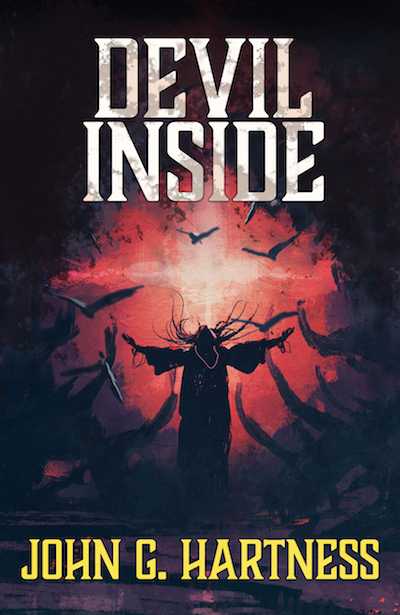
by john | Apr 4, 2017 | Promos/Giveaways, Writing
I have a bunch of stuff coming out in the next couple months, and I’m fortunate enough to have an amazing cover artist, Natania Barron, working on them. She’s already got the covers knocked out for the next Quincy Harker book, which will be out this month sometime, the next Shadow Council book, which will hit e-stores next month, and a brand new standalone project that’s coming later in the spring.
 First up, here’s the cover for Devil Inside, the next Quincy Harker novella. Devil Inside continues the 8-book crossover event that I’m tentatively calling Quest for Glory. If anyone comes up with a better name, I’m all for it.
First up, here’s the cover for Devil Inside, the next Quincy Harker novella. Devil Inside continues the 8-book crossover event that I’m tentatively calling Quest for Glory. If anyone comes up with a better name, I’m all for it.
In this story, Harker is dealing with some of the fallout from Season 2, then moves on to hunting down the first of the Implements of the Archangels that he has to find. His quest takes him to Charleston, SC, and of course it isn’t as easy as he hoped.
He has to deal with the city’s mystical guardians, who aren’t very trusting of a random new wizard in town, plus a sorcerer who wants to sink the city beneath the ocean, AND he has to find a magical book and his best hope lies in a dotty shopkeeper that speaks only in Shakespeare quotes.
Life can get tough when you’re the Reaper.
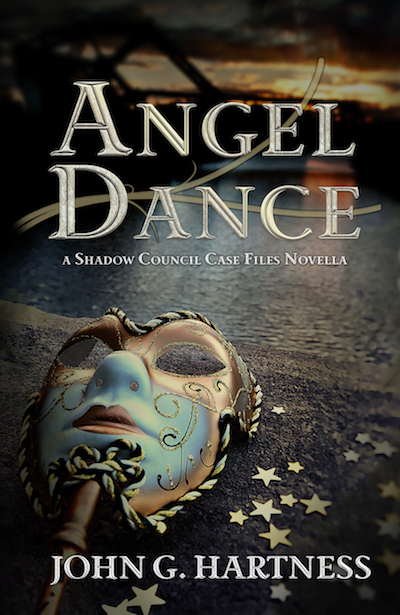
Angel Dance is the next episode in Quest for Glory, and I’m currently writing this one. This novella features Adam, Frankenstein’s monster, in New Orleans looking for the Horn of the Herald. The Horn was played by the Archangel Sealtiel in the War on Heaven, and it’s now lost in a sea of musical instruments in one of the greatest cities for music in the world. Needle, meet haystack.
And of course that can’t be the only thing going on, so Adam has to deal with the fact that someone or something is hunting down practitioners of magic in the Crescent City and murdering them, including one of Adam’s few friends. He doesn’t like it when people hurt his friends.
Don’t make him angry. You wouldn’t like him when he’s angry. For real, folks, he’s friggin’ Frankenstein’s monster, why would you piss him off?
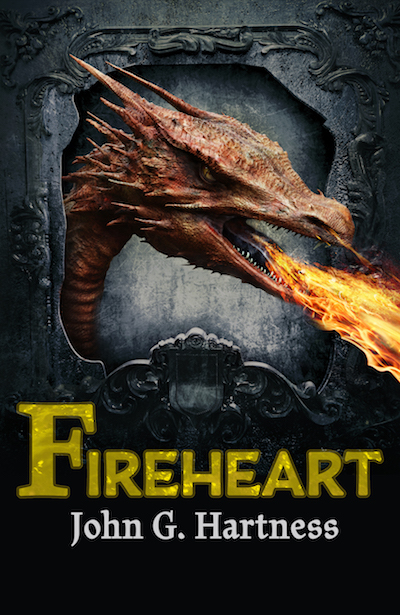
Fireheart is a bit of a departure for me. One, it’s a full-length novel, and y’all know I don’t write that many of those. Two, it’s more of a YA thing than a snarky adult thing, which was a fun changeup to write. And three, it’s a standalone rather than part of a series, so this book is all you get with these characters. It’s something I’ve had kicking around for a while, and I finally dragged it out, finished it, and polished it up. It oughta be out late spring.
In Fireheart, a mountaintop removal mining operation wakes up a sleeping dragon. That’s not a euphemism, they really wake up a damn dragon. Of course, the dragon has been asleep for a few hundred years, and he’s pretty grumpy when his alarm goes off. Rachel Hampton’s father is one of the head geologists at the mine, and he’s injured in the attack.
Rachel’s life is complicated enough with her best friend crushing on her and the cute boy she ran into on her bike (literally!). Then she’s riding through the woods and sees this really cute guy standing in the woods. Butt naked. With golden skin. Because dragons don’t always wear their scales.
So there’s a love triangle. And a dragon. And black helicopters. Because why wouldn’t there be black helicopters?
That’s a little news on the latest upcoming releases. As always, you can join my email list to find out about all this stuff, too! There’s a link over on the side of the page.

by john | Apr 3, 2017 | Amazing Grace, Serialized Fiction, Writing
This is the latest chapter of a new novel that I’m serializing here. I release a new chapter every Monday. If you need to catch up, you can CLICK HERE.
Chapter 8
Thirty minutes later I was back on the porch of the Miller house. Jenny stood next to me, and I wasn’t real sure who was more nervous, her or me. I raised my hand to knock on the screen door, then put it down. I repeated the process two more times before I decided to just bite the bullet and knock.
A man in his mid-forties came to the door, well-dressed despite looking like he hadn’t slept in several days. He stood on the other side of the screen in a polo shirt and khakis, the uniform of the Southern middle class father. I heard a choked sob from Jenny, but when I glanced in her direction, she was gone. Looked like I was on my own for this one.
“Mr. Miller?”
“Yes, I’m David Miller. Can I help you?”
“Mr. Miller, I’m Lila Grace Carter. I live over on Spring Street. I…I’m working with Sheriff Dunleavy investigating you daughter’s death, and I have a few questions, if you have a few minutes.”
“Can this wait, Ms. Carter? This isn’t a good time. My wife just learned that my daughter’s best friend Shelly…” his face crumpled for an instant, but he pulled himself back together. “I’m sorry. We just got some sudden news and my wife is very upset.”
“I understand, Mr. Miller. I was just with the Sheriff,” I said, wondering a little how the word got out this fast. Sheriff Dunleavy would have barely had time to go talk to Shelly’s family, and the Millers already knew. Word spreads fast in small Southern towns, and never faster than when the news if awful. “But we would really like to get any information you have as soon as possible. If there’s any way…”
“Okay, fine,” he sighed. “But out here. My wife is…resting right now. I don’t want her disturbed.” He motioned to a pair of white wooden rocking chairs on the porch, an accessory that should almost come with the porch in the rural South. I took a seat, and he put his hand on the other one before stopping himself.
“I’m sorry, I’m being rude,” he said. “Can I get you anything to drink? Sweet tea? Pepsi? Ice water? I think there’s even some Cheerwine in there. I don’t know what all people have brought, but there’s at least half a dozen two-liters on the kitchen counter.”
“I’m fine, Mr. Miller. Please, sit down for a minute.” He sat, and we rocked for a minute while I tried to figure out where to begin.
“I know some of these questions will probably be repetitive, but with Shelly’s disappearance, there might be a connection—“
“Do you think whoever hurt my Jenny took Shelly, too?” he asked. There was a flicker of hope in his eyes that I had to temper, or he wouldn’t be able to focus enough to be any use to me.
“I don’t know, sir. I just know that we’re a small town, and a pretty safe one, usually. But here we are with two best friends falling victim to something, I don’t know if it’s bad luck or what, within just a few days of each other.”
“It’s not bad luck,” Mr. Miller said. “Somebody came into this house and killed my Jenny. If that’s the same person that hurt Shelley, then I reckon I’ll have help when I gut the bastard. If it wasn’t, then I’ll get him all to myself.”
I didn’t have anything to say to that. I wasn’t really working for the police, just working with them. A little. Begrudgingly. Plus, I pretty much agreed with him. I decided to just let it lie, rather than trying to give him some line of righteous crap about what his daughter would have wanted.
“Mr. Miller, can you think of anyone who would have wanted to hurt your daughter?” I asked, keeping my tone as gentle as I could. I’d helped Sheriff Johnny with a few cases, but I’d never talked to a grieving parent while I tried to find out who killed his child before, and I felt like I was walking on eggshells.
“No, nobody. She was a cheerleader, in the FCA, ran track, was Vice-President of her class, all that stuff. She was a sweet child, everybody loved her.”
“Was there anyone with a grudge, anyone that may have imagined some reason to dislike her? A classmate, and ex-boyfriend, anything like that?”
“Nothing,” he insisted. “Jenny didn’t date. It wasn’t allowed. We let her go out in groups and some double dates with Shelly, but nothing serious.”
I heard a snort from my left and turned to see Jenny sitting on the porch rail, her immaterial feet somehow twined around the supports. “Little does he know,” the ghost girl said with a saucy grin.
I tried a different angle. “What about Shelly? Was she as…well-liked as Jenny?” I knew the answer I expected, and Mr. Miller didn’t disappoint.
“No,: he said quickly. “Shelly was a little wild. She was something of a mean girl, and I know she put down some of the less popular girls in school. Jenny was always telling us about something Shelly had pulled on an underclassman, or a girl in their gym class, or some poor child that tried out for the cheerleading squad.”
“Did Jenny mention anyone specifically that Shelly was particularly rough on?” I knew that anyone with a grudge against Shelly probably didn’t care much for her best friend, either. I’d also spent enough time with teenaged girls, having been one once upon a time, to know that whatever Shelly did, it was unlikely that Jenny was blameless in the affair.
“I can’t think of…wait, there were a couple,” the distraught father held up a finger as ideas came to him. “There was Ian Vernon, the photographer for the yearbook. Shelly hacked his phone and sent texts to all the girls in school with dirty pictures, making it look like it came from Ian.”
“That’s more than a little mean girl stunt, Mr. Miller. That could cause serious problems for Ian in the future.” I was expecting some teasing, but not hearing that Shelly committed a felony to harass a classmate.
“I know, but you know how kids are, right?” I decided not to get into that discussion with him just days after the death of his daughter. “Was there anybody else that might hold a grudge against Shelly?”
“I guess any girl that didn’t make the cheerleading squad probably hated both of the girls,” he said. “Jenny and Shelly were the ones who decided on the team, with some help from Mrs. Hope, their advisor. Last year there were a few girls who got upset, but from what I understand they put some new systems in place this year to make it more transparent. Score sheets and things like that, and they had individual meetings with all the girls after tryouts to tell them why they didn’t make the squad and what they could work on for next year. From what Jenny said, it worked real well.” I knew Debbie Hope, and that sounded like something she would do. She was a heavy girl in school, and now that she had started teaching she was the kind of teacher that wanted everybody to feel like they were being treated fairly.
“What about boyfriends?” I asked again. “I know you said Jenny didn’t date, but what about Shelly?” I found it hard to believe that two high school cheerleaders wouldn’t at least go on dates.
“She had a few boys that she went out with from time to time, but nobody serious. Jenny and Shelly would go to the movies with Derek and Edward sometimes, and I think Shelly when to the prom with Tony Neefe last year.”
“Who did Jenny go with?”
“She didn’t go. She was supposed to go with Aaron Tolliver, but he started dating a girl, and he wanted to take her instead. So Jenny didn’t go. She was just a sophomore, so she still had two proms, so she wasn’t upset.”
“Really? Had she bought a dress?” I remembered back in the Dark Ages when I went to prom, buying the perfect dress was more of an ordeal than trying to keep your knees together all night after the prom.
“Oh, no,” her father replied. “If I’d laid out that kind of money, there would have been a whole different conversation. No, she never…” He choked up, probably thinking of all the pretty dresses he was never going to get to buy his little girl. My heart broke for the poor man, but I felt like I had to keep pressing. With two dead girls within day of each other, there had to be some connection, if we could just see it.
“I’m so sorry, Mr. Miller. But could you just—“
“What are you doing here?” I turned looked up at a pretty blonde woman in her early forties standing on the other side of the screen door. She was obviously Jenny’s mother, the hair, eyes, and nose were almost identical. But I’d not seen Jenny’s mouth twist up into that kind of scowl, and I’d certainly not heard her speak with such venom.
“I’m sorry,” I stood up and held out my hand. “I’m—“
“I know who you are, charlatan. Pastor NAME has told me all about you.” Mrs. Miller spun around and disappeared into the house. I heard her footsteps stomp through the house, then I heard the sound of a refrigerator opening and closing with a thud.
The angry woman walked out onto the porch holding a blue and white pyrex dish with flowers that I recognized as my own. “We didn’t wash the dish, because I wouldn’t touch any food that came from your house. When Reverend NAME told me you came here, I couldn’t believe him. I couldn’t understand for a second why a heathen like you would want to set foot in the home of a god-fearing family in their time of grief. And now I come out onto my front porch and see you flirting with my husband? You need to leave, right now, and take your witchery with you.”
I was stunned. Speechless. I’d been called a lot of things in my life; heathen, godless, witch, liar, fake, you name it, I’ve heard it. But I’ve never in my life had someone speak to me with the abject loathing that Karen Miller unleashed on me in her den.
I looked down, working hard to keep my temper under control. It was not an inconsiderable struggle, but I somehow managed to speak with a civil tongue. When I felt like I could speak without screaming at her, I said “Mrs. Miller, I am so sorry for your loss, and the last thing I want to do right now is upset you or your husband further. I will go, but please understand that the police have reason to believe that Jenny may not have fallen, and now they have found Shelly NAME’s car in John D. Long Lake, so they have asked me to help with the investigation. I am not trying to do anything other than ask your husband a few questions—“ I snapped my mouth shut as she held up a hand.
“Out,” she ordered. “Get out and do not ever set foot in this house again. Take your dish, and your casserole, and your lies, and your devil worship and get out of my house.”
I nodded. I couldn’t see any way to do anything else, so I just nodded my head and turned to go. I stopped on the sidewalk and turned around, looking at the grief-stricken man sitting in the rocking chair and the fuming woman just inside the threshold. “I hope y’all can find peace. I hope that the police can find who did this terrible thing and bring them to justice. I am truly sorry for your loss.”
Then I turned and walked down the sidewalk, got into my truck, and nestled the casserole dish onto the passenger side of the bench seat amongst a jacket and some other junk to keep it from sliding around. I put then old girl in gear and pulled onto the street, making a right turn, then a left, then another right until I sat in the parking lot of the big Presbyterian church where I grew up.
I unfastened my seatbelt, leaned my head on the steering wheel, and let the tears of pain and shame and anger pour down my face. “Dammit, dammit, dammit!” I shouted in the privacy of my truck’s cab. “Lord, I know I don’t talk to you as often as I should, but I have to ask—why can’t they just let me try to help them? Why do these people have to be so damn mean?”
I sat there for a couple more minutes, then pulled a pack of Kleenex out of the glove box and blew my nose. I tossed the tissue into the passenger seat floorboard and got out to walk the cemetery and talk to my people a little while.
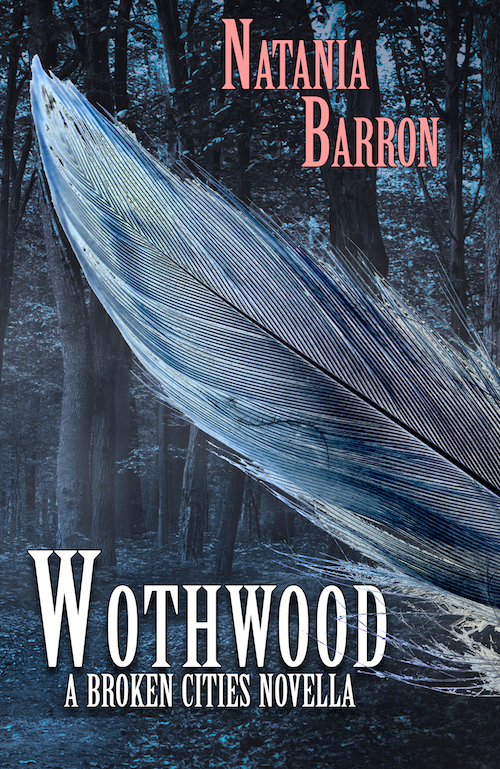
by john | Mar 31, 2017 | Book Spotlight, Evolution, Writing
Natania Barron is a multi-talented amazing human. She’s a mom, a writer, an audiobook narrator, and a badass cover designer. She is responsible for the covers for Wothwood, Into the Mystic, 85 North, and a bunch of upcoming Falstaff Books releases. Go buy her shit!

Wothwood: Where did you come up with the idea?
It’s pretty corny, but the seeds of Wothwood were planted in a dream.
Generally speaking, I’m a pretty vivid dreamer. I tend to dream on an epic scale, and I’ve slayed a few dragons in my time.
This was different, though. In this dream, a son was mourning his father, a ruler of some kind. I was the son, and the connection I had to my father was intense. Unlike the cliched relationships of fantasy novels, this lord and his heir were deeply connected. That feeling was very real, the world cast in a blue twilight. I started a Pinterest board called “The Hand of the Father” and put it on the back burner for a while.
Even though I started out writing heroic fantasy, it had been a long time since I’d written one. But this idea, really this intensity from the dream, stayed with me.As the months passed, the world of Wothwood began to take shape. I was preoccupied with this concept of frontier fantasy — sort of the opposite of Tolkien where the world is moving on and feels very explored — where the edges of the world are still wild and being discovered. I wanted the land itself to have a character, and so the Wothwood itself came to be.
Next came the character of Braig, who was a take on the young man in my dream, the one that should be the hero, but isn’t. In the story, the prologue begins right after Braig’s father’s funeral. Braig is a complex character throughout the story, and has a rather villainous past n some ways, and while the relationship with his father didn’t end up in the novella directly, I wanted him to have that emotional connection in the background.
Aoda came next, and I wanted to tell a story from a woman with the cards stacked against her. As a medievalist, I have always been aware of how hard life was for many people in time without medicine and vaccinations. Aoda wears the scars of syphillis, and people judge her immediately because she’s so ugly.
Glannon started out as just a bit of a plot device in the prologue, but ended up being the third POV in Wothwood and essential to the eventual story. Unlike powerful characters in much of fantasy who spend their whole time trying to win power, Glannon starts off with the power, and thirsts for more while questioning everything around her.
Really, the emotion from the initial dream is something that I tried to wind into the story as a whole. I wanted character emotions to be as vivid as the backdrop to the wood itself.
You can (and should) pick up Wothwood by clicking on this link – it’ll ask you what kind of e-reader you want to use, and then it’ll take you to that store!
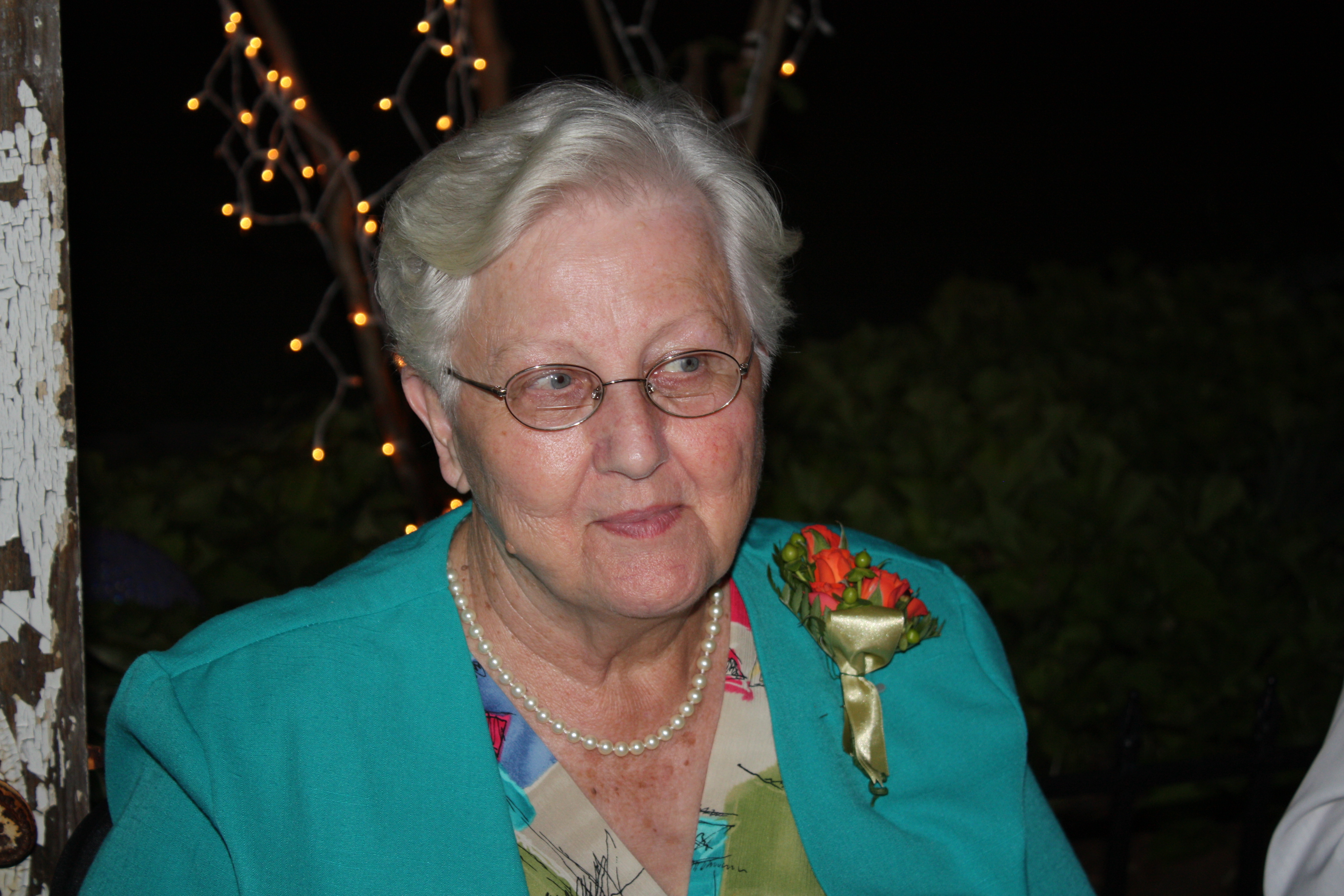
by john | Mar 27, 2017 | Amazing Grace, Fiction, Serialized Fiction, Writing
This is the latest chapter of a new novel that I’m serializing here. I release a new chapter every Monday. If you need to catch up, you can CLICK HERE.
Chapter 7
I walked over to the ghost and tried to speak to her without it being obvious to the dozen people standing behind the police cordon a dozen yards away that I was talking to empty air. It’s not an easy task, but it’s one that I have somewhat mastered over the years.
“What’s wrong, sweetie? You look like somebody just ran over your dog.” I realized as soon as the words crossed my lips that it wasn’t the most polite way of talking to a dead child who just found out that her best friend is dead, too. But there aren’t any instruction manuals for my kind of life, and I couldn’t take it back, so I just had to roll with it.
“Where’s Shelly?” Jenny asked, glowing tears rolling down her face. This was a new one on me. I’d seen ghosts angry, and sad, and even seen a couple of them scared of what was coming next, but I’d never seen one cry before. But here she was, sobbing just like you’d expect a girl whose best friend’s car just got pulled out of a lake to do. Her tears weren’t solid, of course, but they were part of her, a little tiny piece of Jenny’s soul cascading down her cheeks, cutting little trails of faintly glowing light across her shimmering visage.
“What do you mean, where’s Shelly?” I asked. I didn’t want to come off as crass and say that she was on the stretcher being loaded into the back of the ambulance, where do you think she is, you idiot, but that’s kinda what I was thinking.
“I don’t see her. I could see Sheriff Johnny, and I’ve seen a couple of other ghosts as I’ve been walking through town since I…since we first met. But I don’t see Shelly. Where is she?”
I looked around. The child had a good point. I didn’t see Shelly, either. Far as I could tell, Jenny was the only ghost at John D. Long Lake, and I was powerful glad of that. I didn’t relish the idea of telling Shelly that she was dead, especially if it had happened as recently as I expected it had. And worse than that, I sure didn’t want to run into the poor Smith children if they happened to be lingering all these years. I didn’t expect them to, not after all this time, but you never know. Some people have powerful attachments to places, and some people have powerful reasons for wanting to see justice done. None of that is normal for little kids, but there’s no hard and fast rules about the afterlife.
“I don’t see her, sweetie. Maybe she’s not here.”
“Why wouldn’t she be here? Where would she be?” Jenny was starting to get more upset, and her sadness was turning to anger, which was starting to stir up the rocks and dust around her feet. I stepped back and took a look around. We hadn’t drawn much attention yet, everybody was still focused on the macabre ceremony of loading poor Sherry’s body into the ambulance, but that ritual was almost complete, and we would be the most interesting thing by far in a minute or so.
“Jenny, I need you to calm down,” I said in my reassuring teacher voice. It’s different from the steely tone I used on Cracker earlier, but it still got through to the distraught child. A couple of pebbles dropped to the ground as she stopped rocking back and forth and focused on me.
“That’s good,” I said, keeping my voice low and calm. “Not everybody stays around after their bodies die, not even people who are killed or have a good reason to stay. It may be that Shelly didn’t have any great desire to see justice done for herself, or maybe she was just okay with moving on.”
“But…then why am I still here?” She looked up at me, more tears flowing down her face. She was calmer now, but the pain in her voice was heartbreaking.
“I don’t know, darlin’,” I said. “I have no idea what makes one person linger and one person pass on to the other side. If I did, I’d be able to help people move on a lot faster, I think.”
“Is that what you’re trying to do with me? Help me move on?”
“That’s the ultimate goal, isn’t it?” I asked. “You don’t want to stick around Lockhart dead forever, do you? I want to find out who killed you, so he or she doesn’t hurt anybody else, but I also want you to be able to go to your rest.”
“You mean Heaven,” the girl said with the firm conviction of a Protestant teenager that’s never questioned her faith for even one second.
I had no such convictions anymore, unfortunately. “I mean whatever you think I mean, honey. I think it’s probably a little different for everybody, and I’m pretty sure there’s not a lot of harps involved, but I know that whatever’s on the other side waiting for you, it’s a damn sight better than walking around talking to an old woman who’s going to get locked up in a room with padded walls if she keeps standing on the boat landing talking to thin air.”
Jenny smiled and sniffed. She was a cute little thing, even dead and weepy. “Thank you, Ms. Lila. I still don’t know why Shelly wouldn’t want to stick around and find her killer, but I reckon we can take care of that for her.”
“I expect we can,” I agreed. “Now let’s go see if the sheriff has any ideas on how we can do that.”
I walked back over to the car, where Sheriff Dunleavy had just raised the hood. I stuck my head under there beside him and said, “I think that’s the engine, Sheriff.”
“Thank you, Lila Grace. I’m no mechanic, but I think you’re right.”
“Is there anything in the engine that will tell us who killed this child?” I asked.
“Not that I can see,” he replied.
“Has anything been tampered with, like on the TV shows? Brake line cut, anything like that?”
He pointed to a square thing sitting on top of another thing. “That’s the master cylinder. It looks fine. I can’t see where anything was tampered with there.”
“Does that have anything to do with the brake lines?” I asked.
“You don’t know anything about cars, do you, Lila Grace?”
“I know where the gas goes in, I know to change the oil in my truck every five thousand miles, and I know to change my tires every three years. Anything past that, I ask Clyde. His nephew Brownie runs a service station and takes care of all my automotive needs.”
“Then why do you keep asking me about the brake lines?” the sheriff asked.
“On the TV shows, whenever two people poke their heads under the hood of a car that somebody died in, they always come out and say that the brake lines were cut. I just wanted to see if that happens in real life, too.”
“You watch too much NCIS, Lila Grace.”
“That may be, Sheriff, but I can’t help it. That Mark Harmon is just adorable. I like the New Orleans one, too. The LA show is okay, but I don’t like those actors as much. They’re too pretty.”
“Well, nobody cut any brake lines on this car,” the sheriff said, straightening up. I followed suit, and he slammed the hood down, motioning for Clyde to load the car onto his wrecker. “In fact, as far as I can see here, the car was in perfect working order before it went into the lake.”
“So why did it go into the lake?” I asked.
“Well, somebody wanted it to go into the lake. That’s why they drove it in there.”
“I reckon what we have to do next is find out who.”
“Yeah, that’s not the worst thing we have to do next.” I looked at the sheriff, and his face was grim.
“Oh,” I said, my voice soft. “Do you want me to go with you?”
“Do you have any particular connection with the family?”
“No,” I said. “I know them, but only to speak in the grocery store. We don’t go to church together, so I never had Shelly in any of my Sunday School or Vacation Bible School classes.”
“Then you’d better leave this to me. I don’t suppose she’s…” he waved a hand around in the air.
“No, she’s nowhere to be seen, Sheriff. I think she has already moved on.”
“Pity,” he said. “Maybe she could tell us something about the bastard that did this. Pardon my French.”
“Bastard isn’t French, Sheriff. Merde is French, and I won’t bruise if you cuss around me.”
“Just the same, I’ll try to keep it clean. Feels like cussing in front of my mama. Just ain’t natural.”
“I’m pretty sure your mama knows those words, too, Sheriff.”
“Oh, I can guarantee you she does. My daddy was a Marine. She’s heard them all.”
“Was a Marine? It was my understanding that you’re always a Marine.”
“He passed two years ago. That’s the only way you stop being a Marine, Ms. Carter. You stop being.”
“Well, I’m sorry, Sheriff. The loss of a parent is a hard thing to get over, no matter when it comes.”
“I reckon the loss of a child is, too,” he said. “If you’ll excuse me, I’m going to go make this the worst day of a couple parents’ life.”
“I’ll meet you at the station in the morning and we can talk about the fingerprints on that flashlight in Jenny’s basement and look for connections between these girls’ deaths.” I watched him walk to his car and throw his hat on passenger seat. I did not envy the big man his duties this afternoon.
“Do you think the same person that killed me killed Shelly?” Jenny asked. I didn’t hear her come up, but she only made noise if she tried to, or spoke.
“I don’t think it’s a coincidence that two best friends in a town of less than ten thousand people wound up dead within five days of each other. Do you?”
“No, I guess not.”
“Then let’s go back to your house. I need to talk to your mama and daddy. Without that son of a bitch preacher of yours looming over us.”
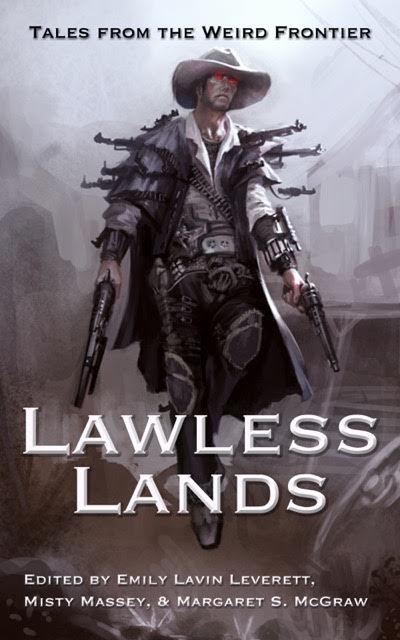
by john | Mar 24, 2017 | Evolution, Guest Blogs, Writing
Nicole Givens Kurtz is awesome on so many levels. She’s a mother, a writer, and a publisher, and an all-around cool person. She sent me an awesome essay – so I’m very happy to run this as the first Evolution post.
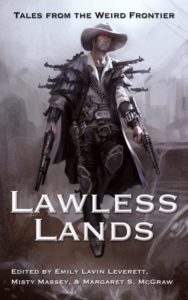 Weird Westerns are a sub-genre of speculative fiction. I was first introduced to this sub-genre when I lived in the Southwest and attended MilehiCon. While there, I met David B. Riley and his publishing company, Science Fiction Trails. He and Laura Givens were working on an anthology of weird westerns. Excited by the idea of creating a diverse populous in the old west, I went home and wrote a short story. I submitted “Justice” to them and it was accepted. The story appeared in Six Guns Straight from Hell.
Weird Westerns are a sub-genre of speculative fiction. I was first introduced to this sub-genre when I lived in the Southwest and attended MilehiCon. While there, I met David B. Riley and his publishing company, Science Fiction Trails. He and Laura Givens were working on an anthology of weird westerns. Excited by the idea of creating a diverse populous in the old west, I went home and wrote a short story. I submitted “Justice” to them and it was accepted. The story appeared in Six Guns Straight from Hell.
It is from those stories in Six Guns that I fell in love with weird westerns. I was won over by the dynamics of steampunk, aliens, and of course, magic in the west. Will Smith’s turn in The Wild Wild West movie conjured up all the western episodes from my past. The fact of a black man in the west, saving it from destruction, stuck to me, despite its silliness. For once, the hero wore my color skin and he was doing it with guns and a dark, black hat—no white hat heroes here!
Recently two of my short stories have appeared in Wolfsinger Publication’s diverse weird western anthologies, Lost Trails Volumes I and II. Most of my southwest stories are weird. I write often about my time in the Four Corners area, but also focusing solely on people not commonly represented, Native Americans and African Americans.
My love affair with weird westerns extend beyond my stories.
I’m a huge fan of Stephen King’s The Dark Tower and anime favorite, Cowboy Bebop. Other weird westerns favorites include Trigun, Samurai 7, and Samurai Champloo. What I enjoy about each of these titles are the diverse casting, the way the west was interpreted, and the dynamics—desperation–between all of the characters.
I’m just as big a fan of original westerns as I am of the weird kind. My mother used to spend Saturday evenings watching Clint Eastwood movies. While some people love The Magnificent Seven, I enjoy The Outlaw Josey Wells and others. Still, Unforgiven, is perhaps the one I love the most. I always cry when Ned dies. Yes, there are subtle commentary about the black cowboy dying in the film, but it’s Morgan Freeman’s portrayal of Ned that really drives my emotional attachment to him. It’s also Eastwood’s grief-stricken agony that tugs on my heart strings when he orders the town people to ‘take care of Ned.’
And the threat that if they don’t, he will come back for them.
Look for my weird western stories in two upcoming anthologies. One if Baen’s Straight Outta Tombstone and the other is Lawless Land available from Falstaff. Both anthologies have some of the best writers in speculative fiction are contributing! Gail Martin, Misty Massey, and John Hartness to name a few. I’m lucky to discover weird westerns on this side of the Southwest. There are great rewards for those who haven’t contributed. So stop by and boost the signal with a great big YeeHAW!
If you’re weird too, you can find me online at @nicolegkurtz (Twitter), http://www.facebook.com/nicolegkurtz (Facebook) or at Other Worlds Pulp, http://www.nicolegivenskurtz.com
Nicole

by john | Mar 23, 2017 | Business of publishing, Writing
As a lot of folks here know, in 2016 I started a small publishing company, Falstaff Books. As such, I look through a fair number of manuscript submissions. I don’t read all of them at first, there’s a team of slush readers that do that. But I sometimes poke my head into the slush pile, and I read everything that gets kicked up the food chain to me.
That means I see some truly interesting things done with formatting of documents. Despite the fact that we publish pretty clear submission guidelines on our website (click the big red button that says “submissions” to see these), we’ll occasionally get some manuscripts that do not follow the guidelines. I don’t know if this is ignorance, hubris, or just stupidity that causes people to ignore the clearly stated guidelines, but it will frequently result in a rejection without the submission ever being read.
Here’s why – I have enough books under contract to not accept another title for publication before 2020, and we’d still be really busy.
We are a very small press. We do not pay advances at this point. We do not have national bookstore placement yet. We have a very small media footprint. We have won no major awards for our books, and have only a few thousand people on our newsletter and social media reach. And we still have so many amazing books in the pipeline that if I didn’t accept another book for two years, we’d still be able to publish multiple books every month for the next three years.
If we are that inundated with talented writers and quality manuscripts at this point in our evolution, how backed up do you think places like Apex or Angry Robot or Baen are? Those folks have been around much longer and have much better distribution, so if you think they aren’t way busier than I am, you’re smoking the good shit.
If you mail me the good shit, I might forgive some of your formatting stupidity.
So that’s what it boils down to with some guidelines – give an editor the shit they want in the format they want it, because doing anything else gives them an excuse to reject your manuscript and move on the next amazing submission in the pile.
But I’m going to go point by point in our guidelines and tell you exactly why they exist. So you don’t sit there and say “That Hartness guy is just an arbitrary asshat that hates kittens and rejected my manuscript because I mailed a hard copy in on cat stationary.”
First off, we only accept email submissions. I don’t have a PO Box, I don’t want a PO Box, and there is no way in hell I want you crazy fuckers showing up at my door with rose-scented perfumed manuscripts.
Secondly, fuck you, I love cats.

See? That’s my cat. In a Bojangle’s box. He’s fucking adorable.
So here are the guidelines, pulled straight from our website as of today, March 22, 2017.
All submissions should be sent to info@falstaffbooks.com with a query letter and the requested sample, sized by format as indicated above. Should your work be accepted by another publisher during the 45-60 day period of your manuscript’s consideration, we would appreciate you letting us know.
If I have met you personally, you can send it to my email address. Otherwise, use the main email address. This is because all the editors have access to it and everyone checks that email inbox. That means that your manuscript gets seen and evaluated faster. It helps us be more efficient.
Send a query letter. I want to know a little something about you and the book before I dive in. There are a lot of websites out there that will teach you how to write one. They won’t tell you this – if you don’t include anything, I won’t read the submission. I’ll email you a form rejection letter and move along. If you don’t care enough about the book to write a query to get me excited about the book and about working with you, then I don’t care enough to read your query letter. Also, without a query letter it’s just a random email with an attachment. And those get deleted immediately.
Simultaneous submissions are fine, but if the book gets picked up, let me know. That’s just basic courtesy.
Please format your work in Standard Manuscript Format, which is:
- MSWord documents ONLY (.doc and .docx format)
- I fucking hate RTF Files. I’m getting old and I need to be able to adjust the size of a document easily. Word lets me do that. I don’t write in Word. I don’t care what you write in. The publishing world works in MSWord, so fucking get a copy of it. Some of the free stuff out there is great, but some of it the formatting looks like a pile of assholes when you transfer it to Word, so you better be able to look at it in Word before you send it. And if you can look at in Word, why not just make it there?
- 12pt. Times New Roman Font
- Yes, goddammit, you have to use the right font. I find serif fonts easier to read, and 12-point is about the smallest my old eyes ca handle. When your business card says “Publisher” on it, you can set the rules to make your life easier.
- 1-inch Margins
- It makes things look uniform, and gives me some idea of how long your paragraphs will appear on the printed page. It’s a small thing, but the idea of blocks of grey space is something I think about, and at this point if a submission follows traditional guidelines, I get a sense of how dense the text is.
- Double-Space between lines
- I mentioned I’m getting old, right? I never expected to survive my twenties, and there are plenty of people who hung out with me who also didn’t expect it. But since I did, and now I’m in my forties, I’m fucking blind. Double-spaced used to be for manual edits, now it’s for old bastards who need help reading.
- DO NOT INDENT MANUALLY
- We make a shit ton of ebooks. Ebooks hate hard tabs. So don’t fucking use hard tabs in your document. Gain some facility with the rod processing software and set your preferences to indent the first line of each new paragraph. It’s one of the things you can do when you’re fixing the font and spacing. Someone is going to have to go back through and do this anyway, so you may as well do it from the start. I sure as fuck am not going to do it, so if you send me a manuscript full of manual indents (hard tabs), you’re getting the thing back with a note that says “get rid of all the fucking hard tabs” before edits.
- Number your pages in the UPPER-RIGHTHAND CORNER starting on the SECOND PAGE
- Help me keep track of where I am. Again, it’s something you set up at the beginning of a document.
- Please include your name, email, address, and phone number on the COVER PAGE
- I would like to know how to get in touch with you, just in case you’re fucking amazing.
- CHAPTERS must start on a NEW PAGE.
- Because that’s how fucking books work. Have you ever fucking read one?
Finally, please wait 45-60 days for our response to your submission. We will request more of your work or send a rejection during that time. Due to the large number of submissions we receive we will be unable to send a personal rejection with each submission, though we will do our best to do so when it comes to novels and novellas.
Those are our guidelines. They’re pretty simple, right? Just follow those, and your shit gets read. Don’t follow them, and you show me that you’re a special fucking snowflake that doesn’t take direction well. It speaks to how you will handle edits, and whether or not you’re a pain in the ass. Here’s a tip – working with a publisher is a multi-year engagement, and nobody wants to work with a pain in the ass for very long. So don’t suck. Put your best foot forward, because your submission is like a first date, and nobody farts at the table on the first date.
So take a fucking Bean-o and enjoy the lobster bisque.

by john | Mar 22, 2017 | The Writer's Journey, Writing
Another Mysticon episode while I prepare to go to SC Comicon and record more episodes, here’s my chat with storyteller, paranormal investigator, and Falstaff Books author Tally Johnson. Tally and I both grew up in the upstate of SC, so we definitely sound like a couple of old SC boys talking. Have fun listening, because we sure had fun recording!










 Weird Westerns are a sub-genre of speculative fiction. I was first introduced to this sub-genre when I lived in the Southwest and attended MilehiCon. While there, I met David B. Riley and his publishing company, Science Fiction Trails. He and Laura Givens were working on an anthology of weird westerns. Excited by the idea of creating a diverse populous in the old west, I went home and wrote a short story. I submitted “Justice” to them and it was accepted. The story appeared in Six Guns Straight from Hell.
Weird Westerns are a sub-genre of speculative fiction. I was first introduced to this sub-genre when I lived in the Southwest and attended MilehiCon. While there, I met David B. Riley and his publishing company, Science Fiction Trails. He and Laura Givens were working on an anthology of weird westerns. Excited by the idea of creating a diverse populous in the old west, I went home and wrote a short story. I submitted “Justice” to them and it was accepted. The story appeared in Six Guns Straight from Hell.







